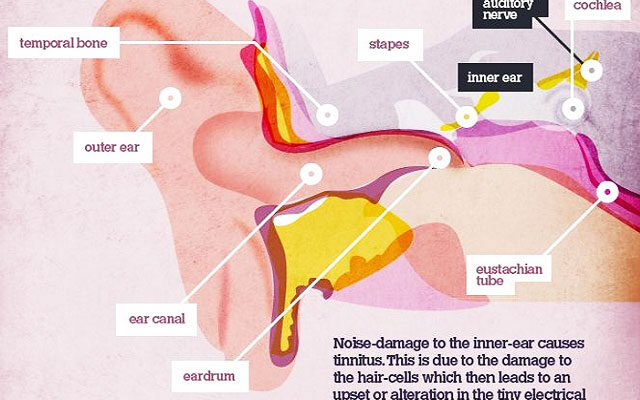For many, the persistent ringing, buzzing, or hissing sound of tinnitus is a mere annoyance, an uninvited soundtrack to daily life often dismissed as a minor ailment or simply a symptom of aging. Yet, new scientific research is urging us to listen more closely. It turns out, that subtle, internal hum might not just be an irritation; it could be your brain attempting a subtle, yet urgent, whisper of concern about your cognitive health.
The Unseen Symphony: What is Tinnitus?
Tinnitus is the perception of sound in the absence of any external acoustic stimulus. It`s not a disease in itself but rather a symptom of an underlying condition. Affecting millions globally, its prevalence tends to increase with age. While often associated with hearing loss, exposure to loud noise, or certain medications, its exact mechanisms are complex and not fully understood. It can range from a mild, occasional nuisance to a severe, debilitating condition impacting sleep, concentration, and overall quality of life.
A New Discovery: Tinnitus and Cognitive Risk
A recent study conducted by researchers at King Khalid University, and subsequently published in the esteemed journal Brain Sciences, sheds new light on the potential implications of chronic tinnitus, particularly in the older population. The investigation involved 240 individuals over the age of 60, with half of the participants experiencing chronic tinnitus.
The findings were striking:
- Participants suffering from chronic tinnitus showed a significantly higher incidence of other health issues, including more pronounced hearing problems, symptoms of depression, and disrupted sleep patterns.
- Crucially, when subjected to a battery of tests, the group with tinnitus consistently performed lower on measures of memory and various cognitive functions compared to their counterparts without the condition.
- The study also established a notable correlation: the longer and more severe an individual`s tinnitus, the higher their likelihood of experiencing cognitive impairments. Researchers specifically noted that for every ten-point increase on a standardized tinnitus severity scale, there was a measurable increase in the risk of encountering problems with memory and thinking.
Unpacking the Connection: Why the Link?
While this research points to a strong correlation, it doesn`t definitively establish a cause-and-effect relationship. However, the potential links are compelling and warrant further exploration:
- Cognitive Load: Imagine your brain constantly working to filter out an internal noise. This ceaseless effort could divert valuable cognitive resources away from tasks like memory formation, attention, and problem-solving, essentially overwhelming the mental bandwidth.
- Shared Neural Pathways: It`s plausible that tinnitus and cognitive decline might share underlying neurological vulnerabilities or involve common pathways within the brain, making one a potential indicator of the other.
- Indirect Impacts: The study highlighted concurrent issues such as hearing loss, depression, and poor sleep quality among tinnitus sufferers. Each of these factors is independently known to negatively impact cognitive function. Tinnitus could be a contributing factor to this cascade of issues that ultimately affect the brain`s performance.
“The persistent hum might not just be an annoying soundtrack to your daily life; it could be your brain attempting a subtle, yet urgent, whisper of concern.”
The Ramifications: A Call for Closer Observation
The authors of the study emphasize a critical takeaway: chronic tinnitus in older adults should no longer be viewed merely as a nuisance but as a potentially vital clinical marker. This suggests that individuals experiencing chronic ringing in their ears might benefit from more thorough and proactive screening for cognitive health issues.
For healthcare professionals, this research underscores the importance of taking tinnitus complaints seriously, especially in elderly patients. It advocates for incorporating cognitive assessments into the routine management of chronic tinnitus, potentially allowing for earlier diagnosis of cognitive impairment. Early detection is crucial, as it opens the door to interventions that might slow progression or improve quality of life.
What This Means For You: Practical Steps
If you or a loved one are experiencing chronic tinnitus, particularly if accompanied by other factors like age over 60, hearing loss, or mood disturbances, it`s wise to consider this new information:
- Do Not Dismiss It: Don`t shrug off chronic tinnitus as `just part of aging.` It warrants attention.
- Consult Your Doctor: Discuss your symptoms with your primary care physician or an audiologist. A thorough evaluation can help identify potential causes and management strategies.
- Address Associated Issues: Work with medical professionals to manage hearing loss, sleep disturbances, and symptoms of depression or anxiety, as these can independently affect cognitive health.
- Maintain Brain Health: Adopt a lifestyle conducive to overall brain health, including a balanced diet, regular physical activity, mental stimulation, and social engagement.
Conclusion
The science is clear: the seemingly innocuous ringing in your ears might be more than just background noise; it could be a significant signal from your body. As we age, listening to these signals becomes increasingly important. By recognizing chronic tinnitus as a potential early indicator for cognitive decline, we gain a valuable opportunity for proactive health management, allowing us to safeguard not just our hearing, but the very essence of our mind.








